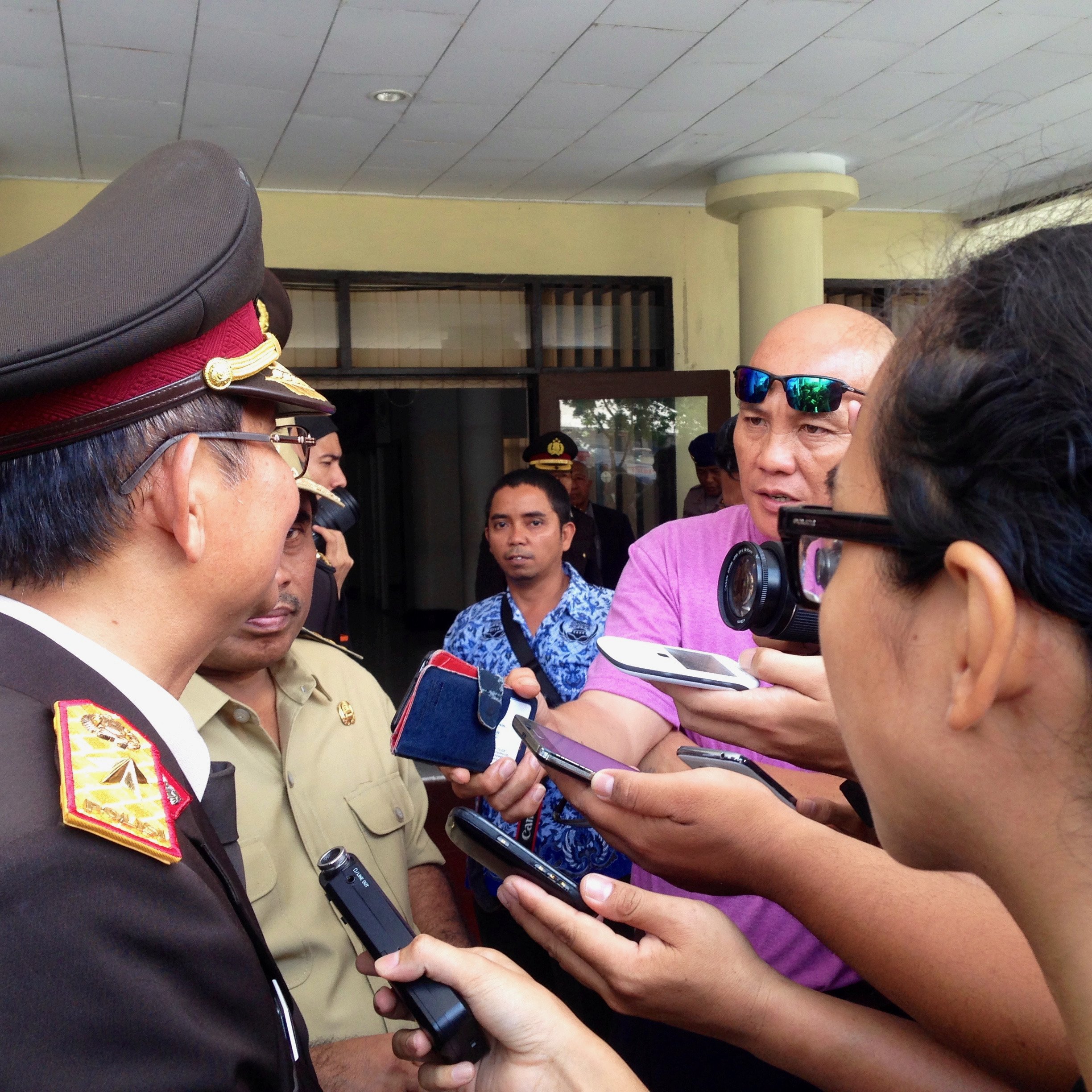Interlude | Relaunch
It’s November 10, 2015: Hero’s Day (Hari Pahlawan). During the ceremony at Manado’s regional police station (Polda Sulut) to celebrate the holiday, there will also be an event related to the famous Brenti Jo Bagate (Stop Boozing) campaign. The campaign was first launched in 2010 by the then head of police, Kapolda Dicky Atotoy, and today it will be relaunched by Head of Police Kapolda Brigjen Pol Wilmar Parpaung and Governor DR Soni Sumarsoni.
While Amanda and I have grown accustomed to arriving at the station late at night to join Team Barracuda on their patrols, it is now daytime and hot outside. We’ve invited ourselves onto the event grounds to watch from the sidelines. There are various ceremonial performances and formalities, including speeches, marches, and, finally, a command performance by the highest- ranking police officers and government officials, including the governor and Kapolda Parpaung. Standing around a large barrel (drum), each man holds a bottle or two of locally produced alcohol, the contents of which they take turns emptying out into the barrel.
This powerful symbolic act is captured by a dozen or so photographers, who make sure that the image ends up on the front cover of the next day’s newspapers. This is often the case for events at Polda Sulut—afterwards, newspapers display the destruction and symbolic abolition of alcohol that takes place in authoritative performances such as, for example, large steamrollers driving over and crushing thousands of bottles, jerrycans, and bags of alcohol, most of it local. These acts display none of the competing normativities or moral ambiguities witnessed during police patrols; instead, they deliver a clear and unambiguous message: we are going to eradicate alcohol. At other times, a little alcohol is poured into a barrel and set on fire, an image reminiscent of drug busts worldwide and the global “war on drugs.”
After the photo shoot, the governor announces that there’s time for short interviews. Without hesitation, Amanda grabs the audio recorder out of my hand, and by the time she reaches the small crowd of journalists, she has her questions ready:
“Excuse me, sir? For the Brenti Jo Bagate program, when will you consider it a success? Will it be if everyone stops drinking or if crime goes down?”
“Yes, both,” the governor replies. “We hope that by stopping alcohol, crime will also decrease. According to our observations, crime starts with hard liquor (miras). So if the miras stops, then the trouble will go down automatically.”
Amanda follows up, “So when all the people in North Sulawesi stop drinking, does that mean the program is a success?”
“Yes, a success. That’s the indicator, but if there are still many who drink, then crime due to alcohol will still be high, and that means the program has failed.” The governor answers quickly, seemingly frustrated by the persistence of a good research assistant at work.
The text on this page is extracted from the PhD thesis: “Inside the Drinking Circle: Cap Tikus, Contested Modernities, and Youth Resistance in Manado, North Sulawesi.” This thesis was submitted by Nastasja Ilonka Roels as part of the Doctoral Regulations of the University of Amsterdam (UvA). All text references should be made to the original thesis manuscript, once published via the UvA Digital Academic Repository, and not to this website. Permission is required to copy, display or reuse images, songs, and videos.



